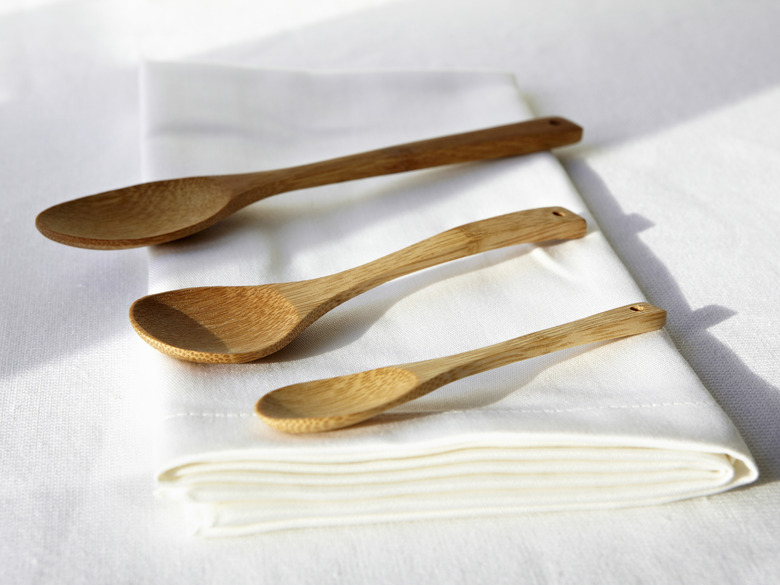How To Season Wooden Spoons With Coconut Oil
Everyone has that favorite utensil that becomes the go-to for cooking your signature dishes. Wooden spoons make a good option because of their durability compared to plastic. They're generally safe to use with all types of cookware because they don't scratch as metal utensils can. Seasoning wooden spoons is part of the care routine to help them last longer.
Why Season Wooden Utensils
Why Season Wooden Utensils
Seasoning wooden kitchen utensils simply means to add a protective layer. It's a part of new wooden spoon care and maintenance for older spoons. The main purpose of seasoning is to protect the wood so it lasts longer.
While wood is a strong material, it can absorb liquids while cooking, which can damage the spoon. Wood can crack, warp, expand or shrink, all of which can distort your spoon or shorten its lifespan. Seasoning also prevents food from sticking, which helps avoid stains and makes cleanup easier.
Using oil is a good option because it's food safe and penetrates the wood fibers to keep other liquids from being absorbed. Coconut oil doesn't go rancid as some oils can, and it contains no nuts, so you don't have to worry about allergies. In addition to olive oil, you can use linseed oil, food-grade mineral oil and walnut oil for wooden spoons.
Sanding the Wood
Sanding the Wood
A quick sanding ensures your wooden spoon is smooth and ready to absorb the oil. Rub a piece of medium- to fine-grain sandpaper over all surfaces of the spoon to get a smooth finish. Feel the spoon with your hand to spot rough patches and sand those down.
Wash the spoon after sanding it to remove any left-behind food debris or dust from sanding. Use soapy water to clean the spoon. You can also dilute vinegar in warm water at a ratio of 1 part vinegar to 5 parts water to sanitize the spoon.
Allow the spoon to dry fully before oiling it. That can take two or three days to ensure the wood is fully dry.
Preparing the Coconut Oil
Preparing the Coconut Oil
Scoop out a few tablespoons of coconut oil. Melt it gently in a pan over low heat. You can add a few teaspoons of salt or sugar to the oil, depending on if you're going to use it for savory or sweet items. If you're not sure, skip the salt and sugar.
Applying Wooden Spoon Oil Finish
Applying Wooden Spoon Oil Finish
Give the coconut oil a chance to cool slightly before using it to prevent burns. Just don't wait too long or it'll solidify again. Place the spoons on a baking sheet. Rub the melted coconut oil onto the spoon using a paper towel. Coat all surfaces of the wooden spoon. Let the oil soak in overnight to penetrate the wood well. Wipe off any extra oil.
You can also pop the spoons on the baking sheet into an oven heated to 350 degrees Fahrenheit for two minutes. Make sure the spoon is cool before you use it.
Maintaining the Seasoned Spoon
Maintaining the Seasoned Spoon
Once you season your spoons, you can rinse them with warm water for easy cleanup. If you wash the spoon with soap, it can remove the oil. Never let your wooden utensils sit in water, even if they're treated, as the water can damage the wood. Avoid using the wooden spoon with raw meat or eggs as it can contaminate it.
You'll need to season your spoon regularly. How often depends largely on how much you use your wooden spoons. For regular use, once a month may be necessary. If you use it more often, you may need to season weekly.
